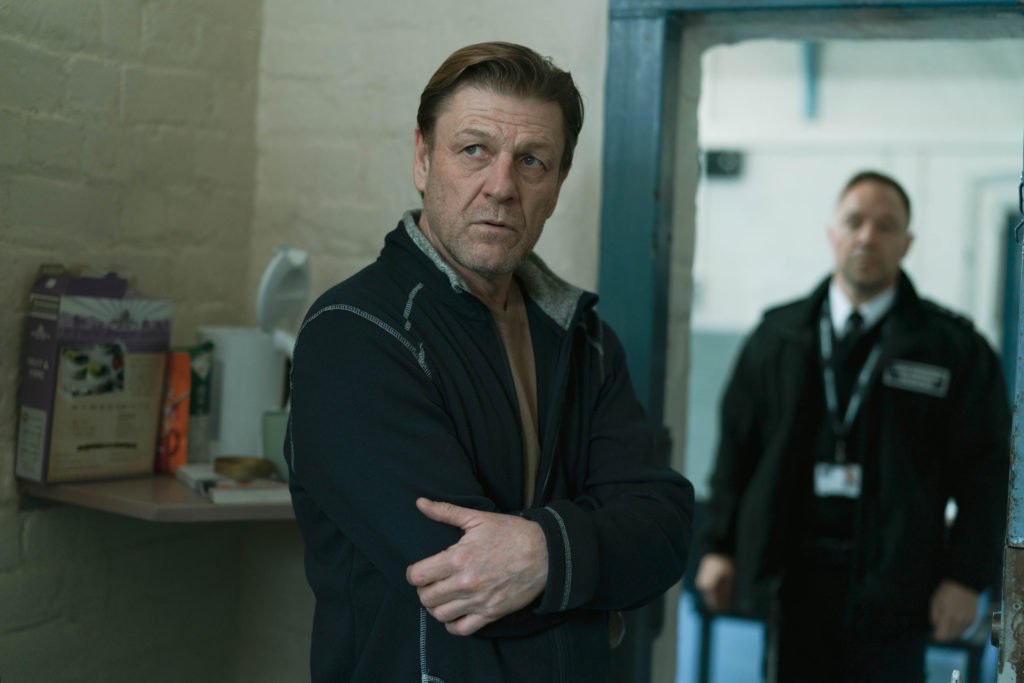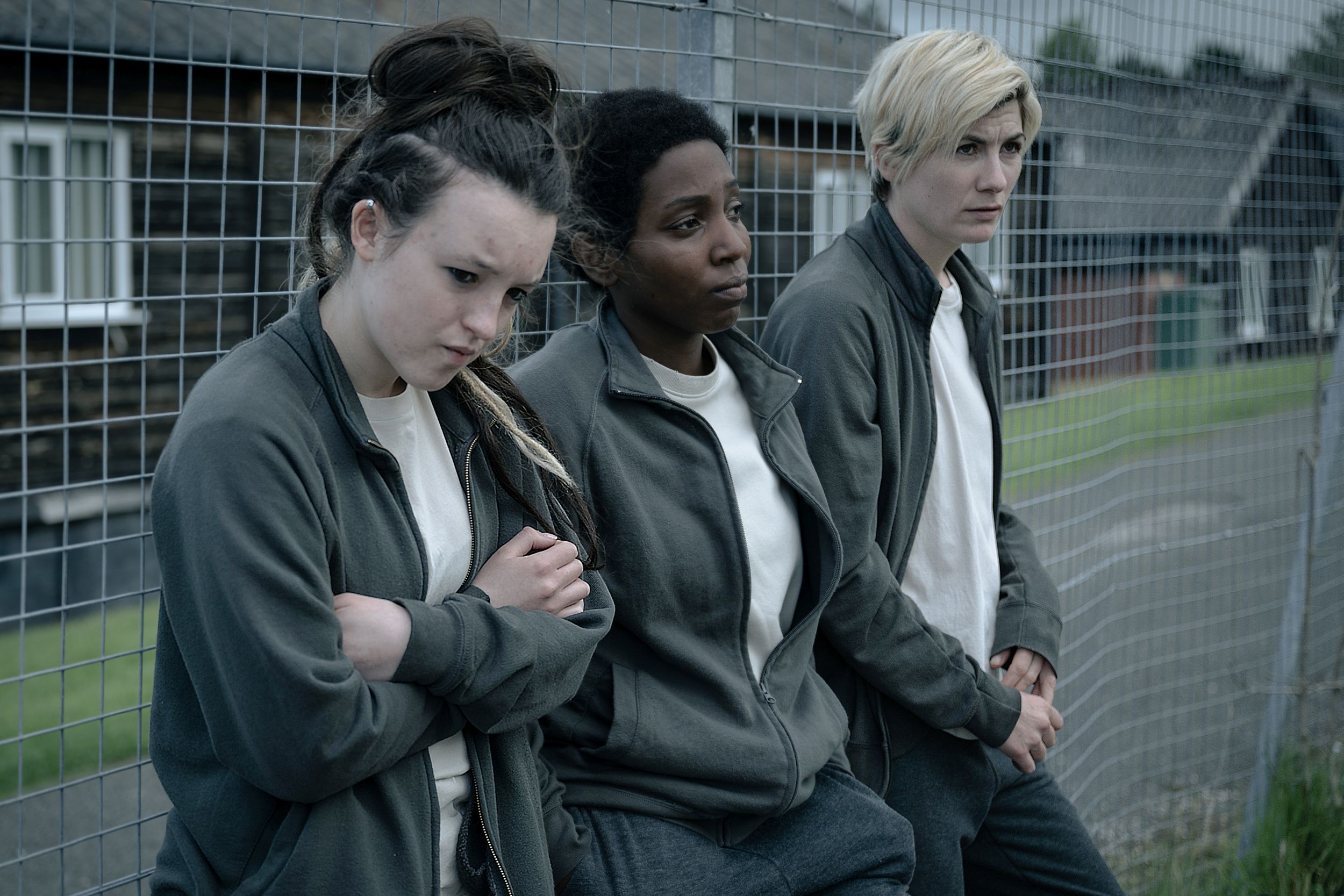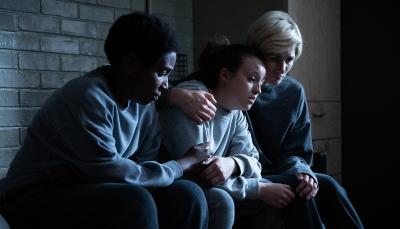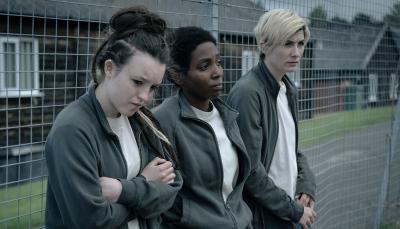Both Seasons of BBC Anthology Series 'Time' are Well Worth Your Time
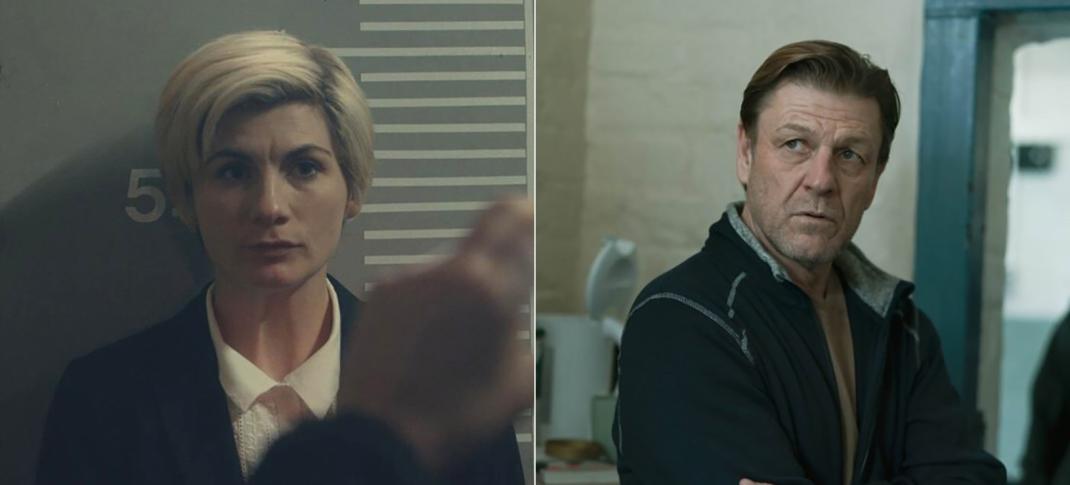
Jodie Whittaker and Sean Bean, the every people of Time Seasons 1 and 2
BritBox
For a show that won critical acclaim in the UK, Jimmy McGovern’s (Broken) BBC prison drama Time flew largely under the radar in the US when it dropped on BritBox in 2021. Luckily, a second season of the anthology series is giving the stunning show a new lease on life. In honor of Time Season 2 premiering on BritBox, we're exploring why both seasons are worth more than a moment of your time.
Season 1 stars Sean Bean (World on Fire) as Mark Cobden, a former English teacher serving time for killing a pedestrian while driving drunk, and Stephen Graham (Bodies) as Eric McNally, a morally grey prison guard. Season 1 ends with Mark finishing his sentence and Eric, who is caught smuggling drugs into prison, beginning his own time behind bars. Their stories are almost cyclical, creating a narratively satisfying conclusion.
Enter Season 2, which swaps the men’s prison for a women’s prison, and introduces three new protagonists. Don’t expect to see any of the characters or plotlines from Season 1 make a return (with one exception, Siobhan Finneran (Happy Valley), who plays a prison chaplain). Season 2 stars Jodie Whittaker (Doctor Who), Tamara Lawrence (The Long Song), and Bella Ramsey (The Last of Us), as three women who enter prison on the same day, all living at the intersection of motherhood, loss, and incarceration.
It’s difficult for a second season to follow such a critically acclaimed first one, but Time’s second season delivers and then some. It matches Season 1 step for step with brilliant writing, acting, and pacing. McGovern didn’t initially imagine Time as a multi-season series, but the way he uses Season 2 to expand on themes that appeared in Season 1 makes the second season a seamless and necessary addition.
He returns to and digs deeper into themes of parenthood, loss, social dynamics between the inmates, and the impossible choices incarcerated people must make. Season 2 is somewhat softer and more introspective than the season that precedes it, but not in a way that feels gendered. It’s just expanding on a tenderness that was present but more subtle in Season 1.
Season 1 delivers much of what you would expect from a prison drama: grit, blood, anger, and intrigue, all excellently written and performed. Mark and Eric are two men fighting their demons and trying to do the right thing, both caught in the prison system. Their stories are compelling, but background characters with less privilege and less obvious moral quandaries are the ones who face the full brunt of incarceration. Their stories beg to be brought out of the side plots and into the spotlight. Season 2 does just that.
Season 2 may feel softer, but that’s not to say Season 2 doesn’t have its moments of shock and violence. One of the season’s most harrowing moments, delivered by Whittaker, feels like a callback to Season 1’s harsher tone. In a moment of panic, Orla threatens the life of her cellmate to negotiate with the guards for a phone call with her son. It encapsulates what makes both seasons so riveting. The protagonists are written as eminently relatable, with a clear message: this could be you.
Yet all five characters are at times pushed to rage and cruelty by the pressures of incarceration. The characters flicker from calm to fury in seconds, and never for a moment lose their humanity. In both seasons, moments of suspense like this one are masterfully shot, scored, and acted. They’re also spaced out enough with quiet moments in between so that the show isn’t impossibly stressful to watch.
All the best elements of the first season are present and accounted for—and improved upon—in Season 2, mostly thanks to the fresh perspectives of the three new protagonists. The season’s story focuses entirely on the women in prison, without diverting attention to the lives of the guards. The “plight” of the prison guard in Season 1 mirrors other law enforcement narratives, like police procedurals, that oversaturate TV today. Season 2 spends more time covering untrodden ground.
The second season also presents a slightly different critique of prison. Season 1 seems to argue that prison, though it causes suffering and strife, can be a source of rehabilitation for people who are willing to submit to the process (in this case, these people are two well-off white men). Season 2 presents a counterpoint, that prison, even for the well-intentioned, is a broken system that has the potential to ruin the lives of people who need help and support. Season 2 does a better job of expressing the everyday indignities of incarceration. In Season 1, both men ultimately agree with the system, see it as penance and their cross to bear. Season 2 reveals that the punishment doesn’t always fit the crime, and the women and their families can be irreparably harmed by incarceration.
The way Mark’s story ends compared to the way Whittaker’s character Orla’s story ends highlights what makes the women of Season 2 more compelling. This isn’t the kind of show that can be “spoiled,” per se, but spoiler warning anyway for the end of each season. Mark and Orla share many commonalities: both go to prison for crimes they never expected to commit. Both are generally peaceful and law-abiding (though flawed) people. They both carry shame for what their imprisonment has done to their children and families. But Mark exits prison into the loving embrace of his mother and son, presumably to return to his comfortable middle-class life. Orla, on the other hand, leaves with nothing. No home, no job, no family, not even friends to take her in. Even her children have been taken from her. The desperation and untethered feeling that comes with watching her final scenes is unlike anything on TV. It takes a bold writer to end a character’s story almost without hope and still maintain the audience’s trust.
Though Season 1 is slightly darker and more gruesome on the surface, Season 2 is the more difficult watch of the two. As full of heart as it is, it is also haunted by the specter of how much is at stake for these three women. Each season has something unique and important to say about the pitfalls of the prison system and the humanity of the people inside it.
Both seasons of Time are streaming now on BritBox.

